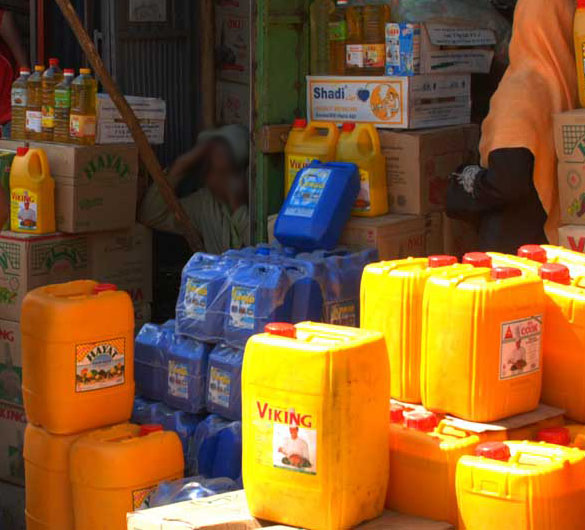The federal government spends USD48 million every month to import edible oil, underscoring the pressing need for import substitution, Ministry of Trade & Industry said.
While import of edible oil is almost USD576 million annually, it accounts for almost five percent of the country’s imports, which stood at USD15 billion during the last fiscal year.
“Local producers satisfy only 12 percent of oil consumption, while the rest is covered by imports,” said Melaku Alebel, Minister of Trade & Industry, mentioning the country needs 57.2 million liters of oil every month.
Currently, the government only imports 40 million liters of edible oil every month.
According to Melaku, the government is keen to encourage local producers engaged in production of edible oil by availing land and providing finances to substitute the item locally.
Currently, eight edible oil plants are under construction in Amhara region with an aggregate refining capacity of over 2,500 tons of edible oil. This is in addition to 11 edible oil refineries that are active in the country.
“The establishment of such manufacturing companies helps us narrow the gap between the demand and supply of edible oil,” Melaku said during an event to lay a cornerstone for the construction of a refinery plant in Sidama region.
The plant, owned by AMA Investment Group, will have a capacity to refine 100 tons of oil per day, in its first year of operation and 300 tons in its second year of operation. Sprawling on a 100,000 square meter of land, the plant is among seven factories slated for construction by AMA.
The lion’s share of oil consumed in Ethiopia is imported palm oil, followed by sunflower oil and locally produced Niger seed oil. Small amounts of soybean, linseed, groundnut, and cottonseed oil are also consumed across the country.
With increasing demand, limited domestic production and the country’s heavy reliance on imported oil, there are frequent supply shortages, especially in urban areas. In addition, consumers have become increasingly diet conscious and are looking for a healthier alternative to palm oil.
TheReporterEthiopia


